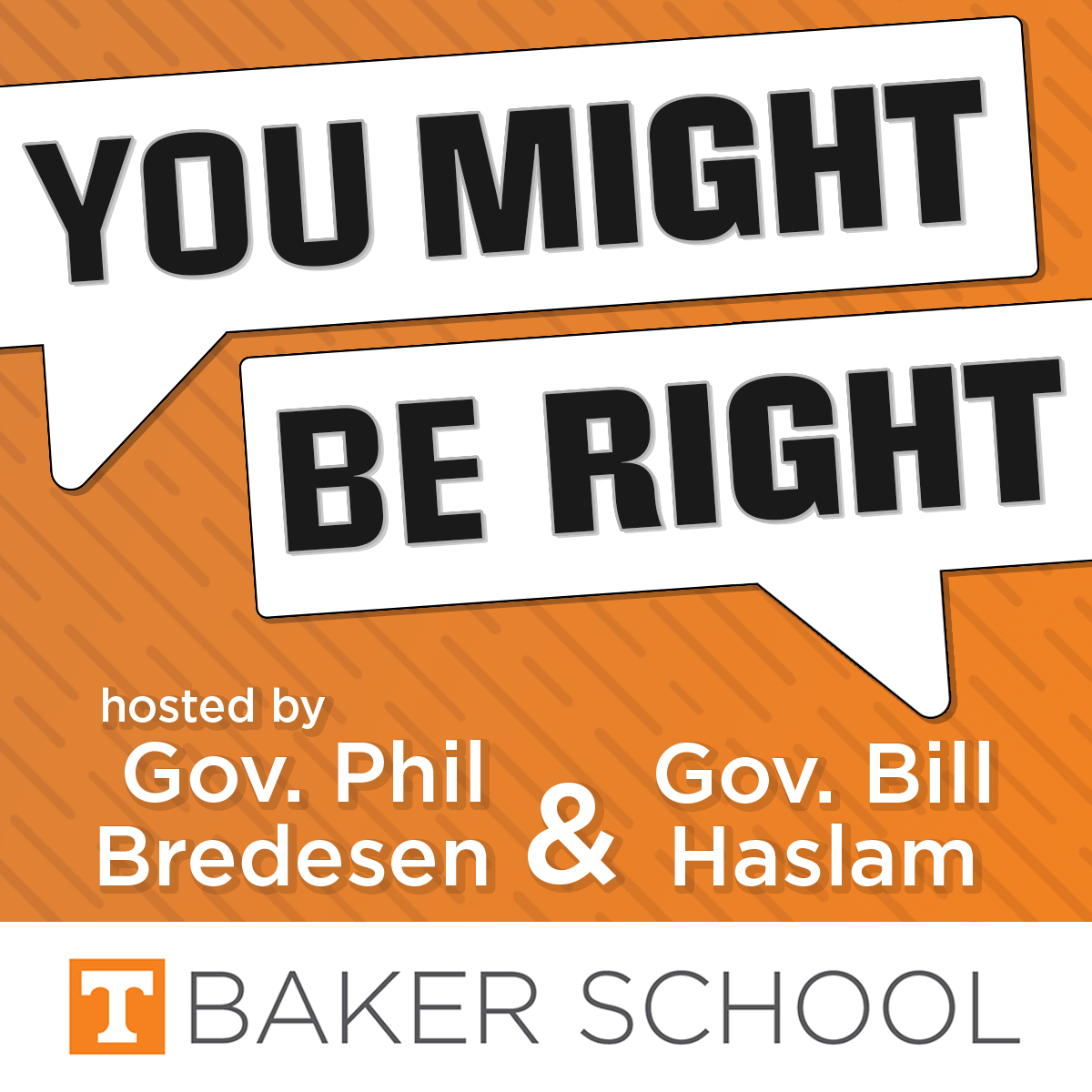How Secure is Your Vote?
SEASON 3, EPISODE 1: Secretaries of State Brad Raffensperger (R-GA) and Jocelyn Benson (D-MI) join Governors Bredesen and Haslam for a conversation about election integrity
Free and fair elections are the cornerstone of American democracy, and the balance between election security and voter access has come under intense scrutiny in recent years. What do voters need to know about how their votes are counted? In the first episode of Season Three, two high-profile secretaries of state from different parties – Brad Raffensperger (R) of Georgia, and Jocelyn Benson (D) of Michigan – join Governors Bredesen and Haslam to discuss their efforts to safeguard elections and combat misinformation.
Subscribe and follow You Might be Right wherever you get your audio content – including Apple Podcasts and Spotify – to never miss an episode, or sign up for our email list to receive new episodes straight to your inbox each week here.
“By and large, America’s very good at running elections”
To start: one point that Benson and Raffensperger firmly agreed on is that our elections are secure. “If you look at it, by and large, America’s very good at running elections,” Raffensperger told the governors. “Many allegations were made after 2020 about double voting, and we just found a few cases of that. Then we had people say that lots of dead people were voting, we found a total of four… we found that out and they were prosecuted, but those are just four out of 5 million.”
Benson agreed. “We know that there’s very little to no evidence of any type of deception or voter fraud or particularly voter-initiated fraud in the process and that when it is identified, and we have a lot of checks in Michigan and in other states to catch it when it happens…so we catch it when it occurs, and then we prosecute it,” she said.
“We wanted to give voters confidence in the process”
Secretary Raffensperger, who famously withstood pressure from President Donald Trump over the 2020 election results, highlighted the importance of paper ballots to election security, noting that making the change to a verifiable paper ballot system was his top priority after being elected secretary of state in 2018.
“We had electronic voting, but we wanted to make sure that we had a verifiable paper ballot that we could do audits, and then join a multi-state organization so we could have clean accurate voter rolls,” he said. “We wanted to give voters confidence in the process, and we thought that by having a verifiable paper ballot, that was a good way we could do that.”
He pointed to the ability to do an audit of any race along with the state’s photo ID requirements and significant early voting opportunities as critical to building trust with voters. “We think the more information you give voters, the more confidence they have in the process,” he said.
Raffensperger credited his understanding of the importance of paper ballots to an unlikely source: President Trump. In response to the “You Might Be Right” question the governors ask each of their guests about a time when they realized someone with a different point of view on an issue was right, Raffensperger said: “Well, if you actually go back after President Trump was elected in 2016, what he said, and he started pounding this issue about having paper ballots and all of a sudden it really raised my awareness about that. And when I ran for secretary of state, that’s one of the items that I put in there and I thought, he’s right about this. We do need to have a paper ballot system.”
“Vulnerabilities and unknowns are the biggest challenges and threats”
Secretary Benson discussed both the logistics and security of Michigan’s same-day voter registration system, which gives citizens the ability to register and vote on election day. While it is a very different process than what is in place in Tennessee or Georgia, she noted that Michigan was not the first state to implement it and benefited from being able to learn from other states that have.
“You have to make sure you’re identifying everyone and verifying their eligibility, and then you have to have a real-time way of making sure they haven’t voted elsewhere… in addition to that, you can only register on election day in certain places,” she explained. And while she noted that same day registrations make up “a very small percentage” of the votes on election day, that group is “still a sizeable number that we need to make sure are following the rules and have access to their vote while complying with security requirements.”
Asked about what potential threat keeps her up at night, Benson pointed to the potential for AI-generated content to mislead voters, calling it “the new frontier.”
“We’ve often said that the biggest security threat to our elections from foreign adversaries comes not to the election infrastructure, which we’ve pretty much protected, but really to voters themselves and the hacking of their minds and confusing them about the process,” she said. “Vulnerabilities and unknowns are the biggest challenges and threats, and the biggest vulnerability and unknown right now comes through this sort of technology space of AI-generated content,” she added, noting that Michigan is in the process of “getting out in front of it” by working with federal partners, secretaries of state across the aisle, and other thought leaders to develop a plan.
To learn more about registering to vote in your state, visit vote.gov. To learn more about how the office of secretary of state varies by state, click here.
Subscribe and follow You Might be Right wherever you get your audio content – including Apple Podcasts and Spotify – to never miss an episode, or sign up for our email list to receive new episodes straight to your inbox each week here.

Join the conversation on Twitter by following @UTBakerSchool, @PhilBredesen, and @BillHaslam.